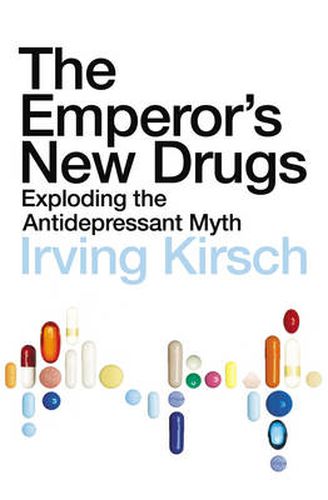Readings Newsletter
Become a Readings Member to make your shopping experience even easier.
Sign in or sign up for free!
You’re not far away from qualifying for FREE standard shipping within Australia
You’ve qualified for FREE standard shipping within Australia
The cart is loading…






* Everyone knows that antidepressant drugs are miracles of modern medicine. By targeting an imbalance in the brain they have restored millions of people to mental health. They are safe and effective and there is a mountain of data to prove it. When Irving Kirsch began to look at that data he knew all this as well as anyone. But, as Kirsch discovered in the course of his research, there’s a problem with what everyone knows about antidepressant drugs. It isn’t true. * His research showed that antidepressants are slightly more effective than placebos in treating depression, but the difference is not very great. When you add in the results from previously unpublished trials, the results are even less convincing. The difference between drug treatment and placebo is statistically significant u it is definitely there. But, according to guidelines laid down by the National Institute for Clinical Excellence, it is not clinically significant. Indeed it turns out that antidepressant drugs are less effective u and significantly more dangerous u than other forms of treatment. Yet they are used on a massive scale around the world and are worth serious money to the companies that sell them. In the United States alone the market is worth $12 billion annually. * So how did antidepressant drugs gain their reputation as a magic bullet for depression? And why has it taken so long for the story to become public? Answering these questions takes us to the point where science and commerce meet, where the lines between clinical research and marketing strategies blur or disappear altogether. This is not a book about alternative medicine and its outlandish claims. This is a book about fantasy and wishful thinking in the heart of clinical medicine, about the seductions of myth, and the final stubbornness of facts.
$9.00 standard shipping within Australia
FREE standard shipping within Australia for orders over $100.00
Express & International shipping calculated at checkout
* Everyone knows that antidepressant drugs are miracles of modern medicine. By targeting an imbalance in the brain they have restored millions of people to mental health. They are safe and effective and there is a mountain of data to prove it. When Irving Kirsch began to look at that data he knew all this as well as anyone. But, as Kirsch discovered in the course of his research, there’s a problem with what everyone knows about antidepressant drugs. It isn’t true. * His research showed that antidepressants are slightly more effective than placebos in treating depression, but the difference is not very great. When you add in the results from previously unpublished trials, the results are even less convincing. The difference between drug treatment and placebo is statistically significant u it is definitely there. But, according to guidelines laid down by the National Institute for Clinical Excellence, it is not clinically significant. Indeed it turns out that antidepressant drugs are less effective u and significantly more dangerous u than other forms of treatment. Yet they are used on a massive scale around the world and are worth serious money to the companies that sell them. In the United States alone the market is worth $12 billion annually. * So how did antidepressant drugs gain their reputation as a magic bullet for depression? And why has it taken so long for the story to become public? Answering these questions takes us to the point where science and commerce meet, where the lines between clinical research and marketing strategies blur or disappear altogether. This is not a book about alternative medicine and its outlandish claims. This is a book about fantasy and wishful thinking in the heart of clinical medicine, about the seductions of myth, and the final stubbornness of facts.